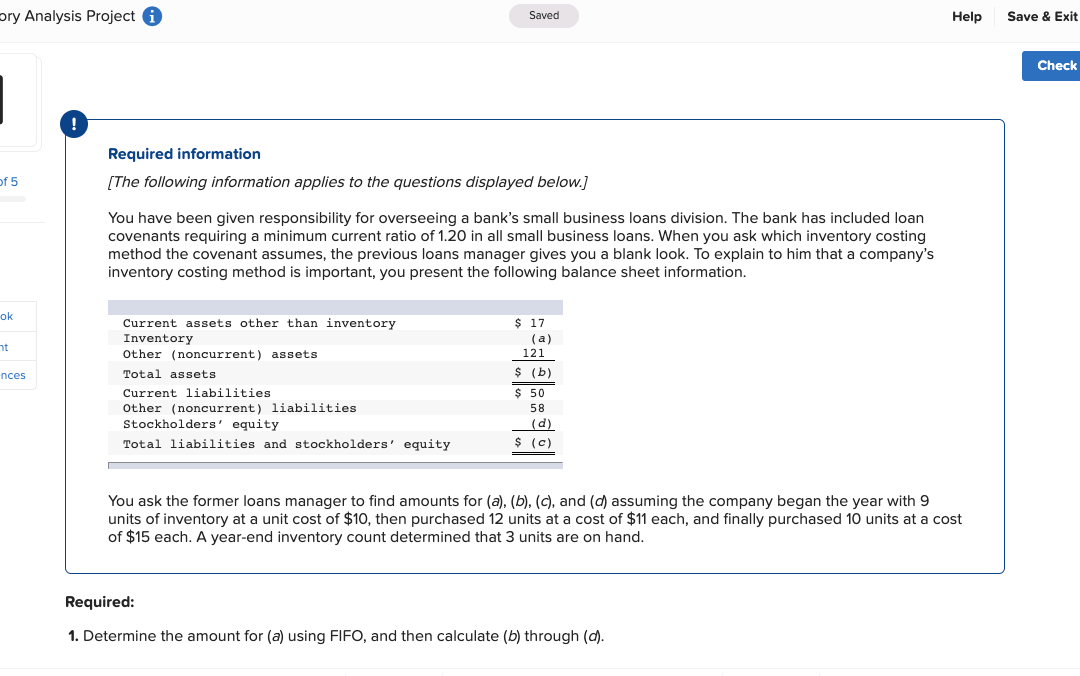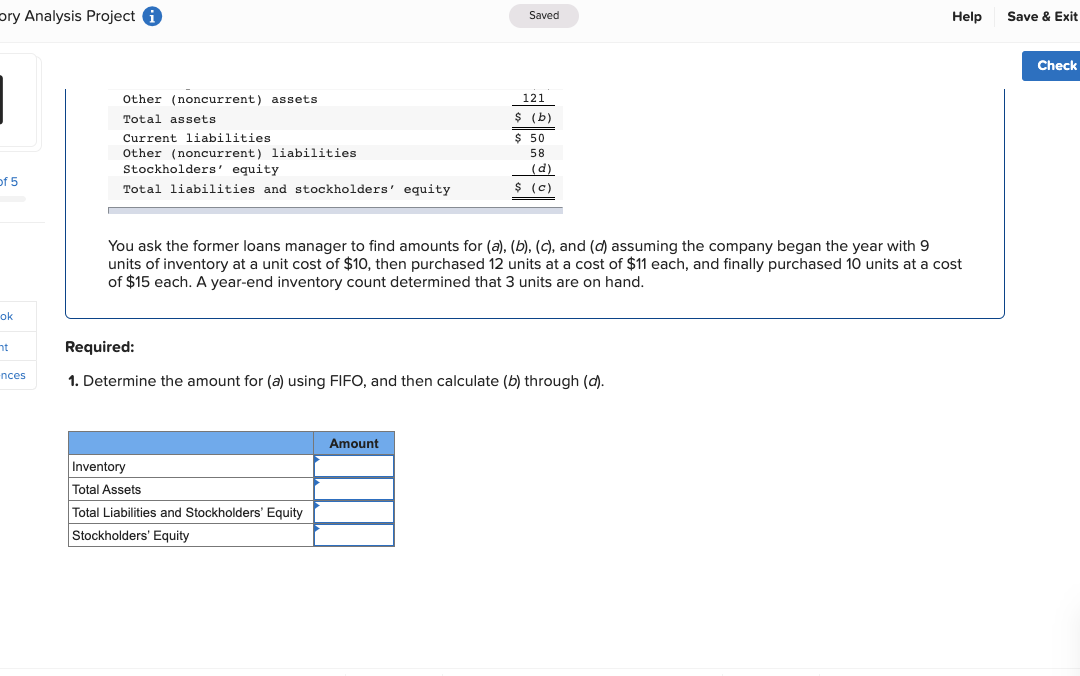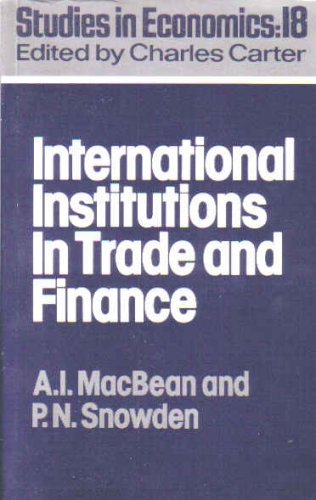

ory Analysis Project Saved Help Save & Exit Check Required information of 5 [The following information applies to the questions displayed below.) You have been given responsibility for overseeing a bank's small business loans division. The bank has included loan covenants requiring a minimum current ratio of 1.20 in all small business loans. When you ask which inventory costing method the covenant assumes, the previous loans manager gives you a blank look. To explain to him that a company's inventory costing method is important, you present the following balance sheet information. ok ht nces Current assets other than inventory Inventory Other (noncurrent) assets Total assets Current liabilities Other (noncurrent) liabilities Stockholders' equity Total liabilities and stockholders' equity $ 17 (a) 121 $ (b) $ 50 58 (d) $ (c) You ask the former loans manager to find amounts for (a), (b), (c), and (d) assuming the company began the year with 9 units of inventory at a unit cost of $10, then purchased 12 units at a cost of $11 each, and finally purchased 10 units at a cost of $15 each. A year-end inventory count determined that 3 units are on hand. Required: 1. Determine the amount for (a) using FIFO, and then calculate (b) through (d). ory Analysis Project Saved Help Save & Exit Check 1 121 Other (noncurrent) assets Total assets Current liabilities Other (noncurrent) liabilities Stockholders' equity Total liabilities and stockholders' equity $ (b) $ 50 58 (d) of 5 $ (c) You ask the former loans manager to find amounts for (a), (b), (c), and (d) assuming the company began the year with 9 units of inventory at a unit cost of $10, then purchased 12 units at a cost of $11 each, and finally purchased 10 units at a cost of $15 each. A year-end inventory count determined that 3 units are on hand. ok at Required: nces 1. Determine the amount for (a) using FIFO, and then calculate (b) through (d). Amount Inventory Total Assets Total Liabilities and Stockholders' Equity Stockholders' Equity ory Analysis Project Saved Help Save & Exit Check Required information of 5 [The following information applies to the questions displayed below.) You have been given responsibility for overseeing a bank's small business loans division. The bank has included loan covenants requiring a minimum current ratio of 1.20 in all small business loans. When you ask which inventory costing method the covenant assumes, the previous loans manager gives you a blank look. To explain to him that a company's inventory costing method is important, you present the following balance sheet information. ok ht nces Current assets other than inventory Inventory Other (noncurrent) assets Total assets Current liabilities Other (noncurrent) liabilities Stockholders' equity Total liabilities and stockholders' equity $ 17 (a) 121 $ (b) $ 50 58 (d) $ (c) You ask the former loans manager to find amounts for (a), (b), (c), and (d) assuming the company began the year with 9 units of inventory at a unit cost of $10, then purchased 12 units at a cost of $11 each, and finally purchased 10 units at a cost of $15 each. A year-end inventory count determined that 3 units are on hand. Required: 1. Determine the amount for (a) using FIFO, and then calculate (b) through (d). ory Analysis Project Saved Help Save & Exit Check 1 121 Other (noncurrent) assets Total assets Current liabilities Other (noncurrent) liabilities Stockholders' equity Total liabilities and stockholders' equity $ (b) $ 50 58 (d) of 5 $ (c) You ask the former loans manager to find amounts for (a), (b), (c), and (d) assuming the company began the year with 9 units of inventory at a unit cost of $10, then purchased 12 units at a cost of $11 each, and finally purchased 10 units at a cost of $15 each. A year-end inventory count determined that 3 units are on hand. ok at Required: nces 1. Determine the amount for (a) using FIFO, and then calculate (b) through (d). Amount Inventory Total Assets Total Liabilities and Stockholders' Equity Stockholders' Equity








